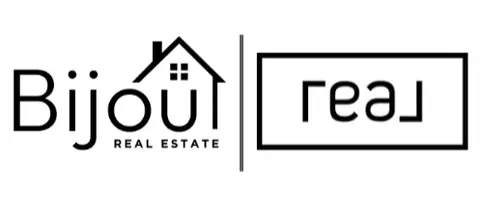Seek out a reputable REALTOR® who specializes in the type of property you desire. Look for someone with extensive knowledge of the local market.
Assess your financial situation for home buying considering factors like down payment, monthly mortgage, property taxes, and insurance. Financing options include traditional banks, mortgage brokers for more options, and creative financing for investing or when traditional avenues are inaccessible.
3. Initial meeting or consultation
It is crucial to schedule a meeting with your chosen agent to discuss your unique situation and goals in the ever-changing real estate market. This meeting helps in assessing your position, setting goals, and creating an action plan for moving forward confidently.
4. Start the search
Once you've defined your home preferences and budget, set up a property search to notify you of matching listings. Stay focused on your goal during property viewings to streamline the process. Quickly identifying suitable properties will prevent viewing irrelevant ones and feeling discouraged.
5. Make an offer and negotiate
Once you have found a home that will suit your needs, the next step is to prepare and present an offer. Several steps have to be taken when you write your offer.
6. Property research
This is where you investigate the selling history of the home and also where the price is relative to the market. To do this, an assessment of the current homes on the market and properties which have recently sold will have to be done. This is where you will get most of your firepower for determining your offer price.
7. Terms
Terms are the clauses that make up the contract. These are the items that are agreed to and will be upheld, otherwise there is a breach of contract. In addition to the standard terms that will be reviewed with you when preparing the offer, you can add in whatever else you need to, however, these are open for negotiation.
8. Conditions
9. Deposits
In order to write an offer, you will need a cheque and some available money for a deposit. This is initially a show of good faith in a transaction and is fully refundable if the conditions on the purchase are not removed. After the conditions are satisfied and removed in writing, the deposit becomes the seller’s security that you will complete the purchase (non-refundable).
10. Price
In real estate transactions, only price and terms are negotiable. Offer price is influenced by property specifics like market time and competition. Meeting the seller's needs creatively beyond price helps achieve mutual goals.
11. The offer presentation and acceptance procedure
REALTOR’s® job to present the offer to the seller. This will typically happen one of two ways: First, if the seller is available, the offer can be presented in person or directly to the owner of the home. The listing REALTOR® will be there to represent their client, however this is a good opportunity to meet the seller and present your case in person (much more intimate and effective). An alternative method is by emailing the offer. This means that you will need to be accessible by phone for negotiations to occur. Once a counter offer is received, or the offer is accepted, all parties will now need to sign the documents.
After accepting an offer, fulfilling conditions involves a home inspection, providing personal and property details to a mortgage broker, and making arrangements with the help of REALTORS®. Once information is verified, a decision is made and communicated to the seller. Removing conditions marks the sale as "firm" and the property as "sold" for advertising.
13. Preparing for possession
Typical possessions are 30 - 60 days, however, they may be quicker. . . much quicker. Get the following items completed as fast as possible, as this will alleviate a large amount of stress.
14. Lawyers
It is important to select a lawyer for the transaction. Your REALTOR® typically assists in gathering the necessary paperwork for the lawyer. Meeting with the lawyer a week before possession involves providing insurance details, down payment, fees, taxes, signing documents, and finalizing requirements before owning the home.
15. Down payment
If your down payment is not readily available, make arrangements to obtain it by transferring money, cashing in bonds/stocks, or using other methods. Note that liquidating assets may take over 30 days, so consult your bank or mortgage broker for guidance.
16. Movers
When hiring professional movers, book early to secure a spot as they get booked quickly, especially around common possession dates like the 1st, 15th, or 30th of the month.
17. Insurance
When meeting with a lawyer for a mortgage, insurance proof is required. Prepare a copy of the home listing with specifications. Be ready to discuss house details like age, furnace, electrical system, roof, square footage, and features.
18. Utilities
When moving into a new home, remember to transfer utilities like phone, cable, internet, power, water, and gas to your new address ahead of time. Don't forget to cancel utilities at your old residence.
19. Possession day
After you take possession, the transaction is complete. But, questions may still arise after the fact. Who should I contact about this? Or what should I do about that? After a few days in the property, you will receive a follow-up call to ensure things are in order. Write down your questions so you will be prepared for the follow-up call.


